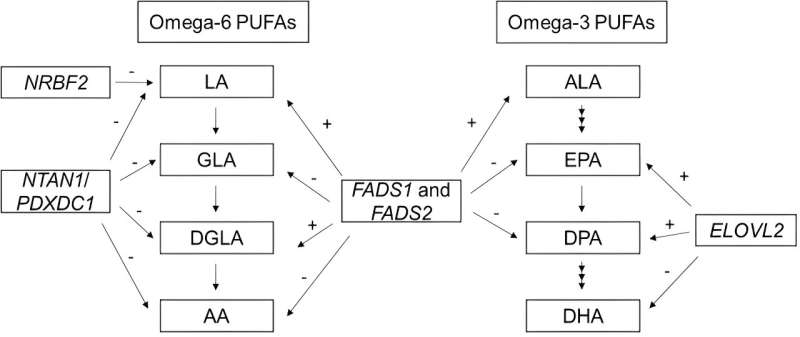This article has been reviewed according to Science X's editorial process and policies. Editors have highlighted the following attributes while ensuring the content's credibility:
fact-checked
peer-reviewed publication
trusted source
proofread
Omega-3 discovery moves us closer to 'precision nutrition' for better health

University of Virginia School of Medicine researchers have obtained new insights into how African-American and Hispanic-American people's genes influence their ability to use Omega-3 and Omega-6 fatty acids for good health. The findings are an important step toward "precision nutrition"—where a diet tailored to exactly what our bodies need can help us live longer, healthier lives.
Omega-3 and Omega-6 are "healthy fats." We can get them from foods, but many people also take them as supplements. Omega-3 helps keep the immune system healthy and may lower the risk of heart disease, while Omega-6 promotes immune health and offers other benefits.
These fatty acids also play important roles in the proper functioning of our cells. People with higher levels of the fatty acids circulating in their bloodstreams are thought to be at reduced risk of heart disease, type 2 diabetes, Alzheimer's disease, breast cancer and other serious illnesses.
There has been substantial research into how genes influence the body's ability to use Omega-3 and Omega-6 among people of European descent, but there has been much less study among Americans of Hispanic and African descent. UVA's Ani W. Manichaikul, Ph.D., and colleagues set out to address that disparity. Their new findings reveal broad similarities among the groups but also some important differences—differences the researchers say highlight the need to conduct genetic studies in diverse groups of people.
"People of diverse ancestries have some distinct features in their DNA, and we can find this genetic variation if we include diverse participants in research," said Manichaikul, of UVA's Center for Public Health Genomics and Department of Public Health Sciences. "The results from this study bring us a step closer to considering a full spectrum of genetic variation to predict which individuals are at increased risk of fatty acid deficiencies."
Genetic influence on fatty acid use
To better understand these genetic differences, Manichaikul and colleagues looked at data collected from more than 1,400 Hispanic-Americans and more than 2,200 African-Americans. This data was obtained through the Cohorts for Heart and Aging Research in Genomic Epidemiology (CHARGE) consortium, an international group created to facilitate large-scale genetic analyses.
Manichaikul and colleagues report that prior genetic findings on fatty-acid metabolism in people of European ancestry often held true for Hispanic- and African-descended people. For example, one location on a particular chromosome had been identified as an important hub for the regulation of fatty acid use in Europeans, and that hub proved important for people of Hispanic and African descent too. There were several such shared genetic influences across the three groups.
But Manichaikul and her team also found notable differences, with several previously unknown genetic sources of variation in fatty-acid levels among both Hispanic-Americans and African-Americans.
The differences the researchers detected in Hispanic-Americans and African-Americans help explain why their bodies use fatty acids differently. They also suggest answers to questions such as why Hispanic people with significant American Indigenous ancestry often have lower levels of fatty acids in their blood.
The researchers say their new findings lay the groundwork for future studies to examine how fatty-acid differences may influence the outcomes of diseases such as cancer, or how they affect immune system function. We might then use "precision nutrition"—a carefully tailored diet or strategic supplementation—to improve those outcomes.
"Our study found new fatty acid-related genetic variation that we have never found in our earlier studies that did not include as much genetic diversity," Manichaikul said. "In our future research, we will continue to include as much ancestral and genetic diversity as possible, so that we can learn how the vast array of variations in human DNA affect people's health."
The researchers have published their findings in Communications Biology.
More information: Chaojie Yang et al, Genome-wide association studies and fine-mapping identify genomic loci for n-3 and n-6 polyunsaturated fatty acids in Hispanic American and African American cohorts, Communications Biology (2023). DOI: 10.1038/s42003-023-05219-w




















